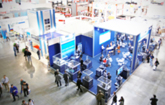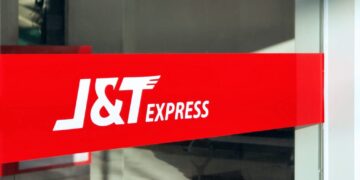The Hong Kong General Chamber of Commerce said there is growing interest from Middle Eastern firms and wealth funds to invest in this part of the world.
The group believes the SAR can provide solutions in sectors such as innovation, construction and education.
Its chairwoman Agnes Chan will be among dozens of business leaders joining Chief Executive John Lee on a visit to Qatar and Kuwait on Saturday.
She said her group regularly hosts officials and business executives from the Middle East.
That included a meeting in April with Abdul Aziz Abdulla Al Ghurair, the chairman of Mashreq, a leading bank in the United Arab Emirates.
“He’s particularly interested in the entrepreneurial ecosystem in the innovation and technology sector,” Chan said.
“They’ve heard a lot about the high-quality productive forces in China and how we are focusing in terms of China’s targeted 5 percent GDP growth.”
While Gulf nations traditionally rely on oil export revenues, Chan said they’ve realised that oil prices could be under pressure in the event of a global economic slowdown.
“They realise relying on the traditional oil and gas is not the best way to go in terms of all the transformation that’s going on.
“They have capital, so they are looking to invest in growing sectors.
“Life science is also an area they are interested in, and technology certainly, and then education exchange. So they’re looking for more knowledge sharing between universities.”
Hong Kong and Middle East countries have already been fostering closer ties. Chan noted that merchandise trade between the SAR and the six member states of the Gulf Cooperation Council – Bahrain, Kuwait, Oman, Qatar, Saudi Arabia and the UAE – reached HK$154 billion in 2024, a 50 percent jump from 2020.
Commercial sector lawmaker Jeffrey Lam said growth in these markets does not mean Hong Kong can ditch its long-established trading partners like Europe and the United States.
Lam, who’s also an executive councillor and a toy manufacturer, foresaw a tough few months ahead for SAR exporters as they lose orders or have to suspend shipments because of the tariffs imposed by the Trump administration.
“If you don’t ship, you don’t receive money and that creates cash-flow problems (for manufacturers),” he explained.
“We need the government’s support on this matter, as well as from the Monetary Authority and the banks. There are also logistical issues because you have to find warehouses to store the goods.”
Lam called on Hong Kong companies to think ahead and see how they can grasp the vast opportunities from the Gulf nations, especially in infrastructure construction.
“And after buildings are built, infrastructures are completed. There are so many, many opportunities. You know, how many lifts will be needed? How [much] office equipment? How many household items would be needed? You know, all those are opportunities for us,” he said.
Lam, who is also part of the SAR delegation, said he’s looking forward to the trip because there are “always good opportunities” whenever he travelled to the Middle East.













